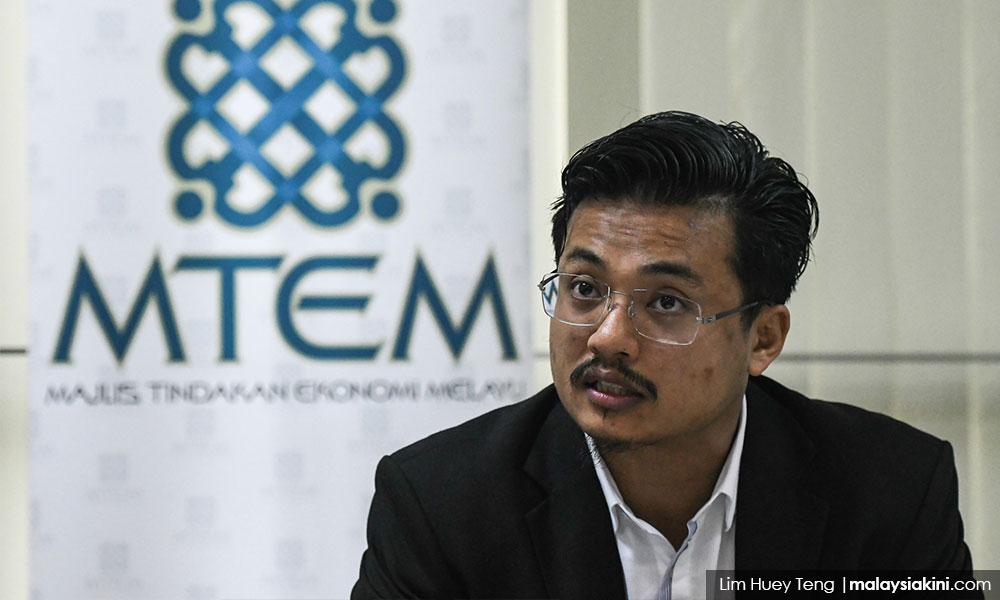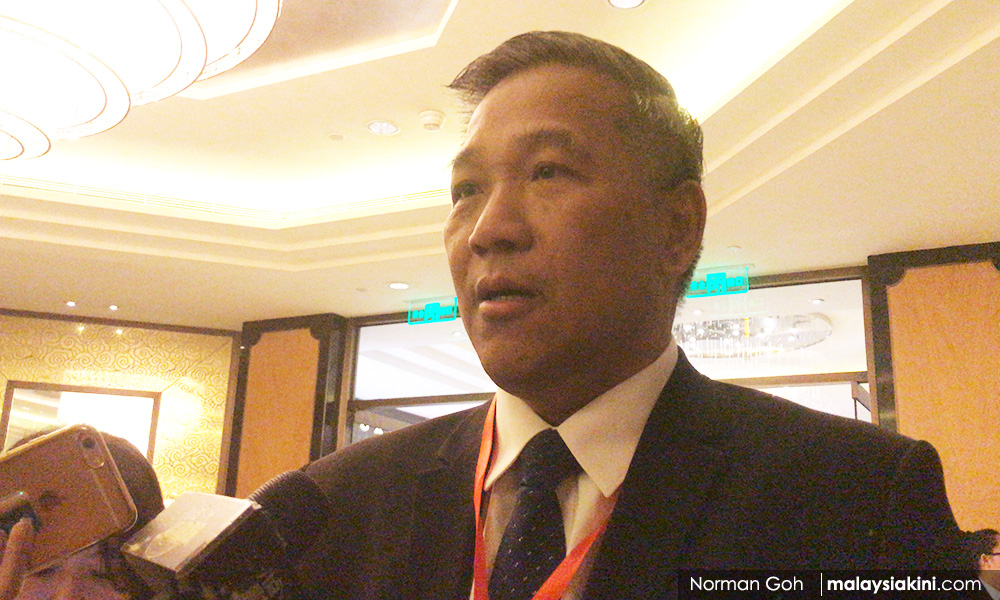
Malay and Chinese business organisations might have differing views on the issue of Mandarin requirement for job applicants but both agree that more studies must be carried out to understand the circumstances behind such criteria as opposed to dismissing it as deliberate racial discrimination.
Malaysia-China Chamber of Commerce (MCCC), which comprises close to 2,000 small and medium enterprises, urged Education Maszlee Malik (above) to engage Chinese employers.
This is over Maszlee alleging discrimination against bumiputera applicants due to Mandarin literacy being an alleged prerequisite for Chinese Malaysian-owned businesses.
"He made the remark without checking.... as a minister, his words carry weight. When he speaks on ethnic-related issues, he should substantiate it with statistics instead of speaking as he likes or relying on information from one particular party," MCCC treasurer Thay Peng Hong told Malaysiakini.
Thay, who runs a construction firm, said his company hires 60 percent Malays despite its dealing with China-based companies and Mandarin requirement is only set for those who need to communicate with their Chinese counterpart.
Meanwhile, Malay Economic Action Council (MTEM) chief executive officer Ahmad Yazid Othman (below) said there must be an acknowledgement that job discrimination exists, stating that he had received many such complaints.

However, he acknowledged that proper studies by stakeholders, including the government, should be conducted to determine facts of the matter.
"There needs to be a study and report on the composition of workers by race, salary, position in all private companies.
"Then we can determine if there is a trend of racial preferencing and determine why? Whether it is purely based on merit or otherwise," he told Malaysiakini.
The relevant laws and enforcement can then follow, he added.
'Wrong to make blanket assumption'
Malaysian Employers Federation (MEF) executive director Shamsuddin Bardan said language requirement should not be seen as a blanket attempt at racial filtering as there are legitimate needs by companies.
He said it only constitutes discrimination if, for example, a company sets a Mandarin literacy requirement even though it has no such need.
"This is where the authorities come in. For example, the Labour Department can check the advertisements and check whether the company genuinely needs Mandarin-speaking workers, such as (to deal with) clients from China," he said.
Shamsuddin said job seekers should view language requirement positively and seek to upgrade themselves.
"For example, Malays can speak Mandarin, why not? Or Chinese who speak Arabic can be hired to communicate with clients in the Middle East, why not?
"If they do not have mastery in the required language, they can look into taking crash courses and there are many institutions that offer short courses. They can sharpen their skills for when they start work," he said.
He added that the Education Ministry can also look into offering Mandarin courses at institutions of high learning in light of China's economic expansion as a global power.

Meanwhile, SME Association of Malaysia Michael Kang (above) too urged Maszlee to engage employers, stating that his statement did not reflect the general practice of various industries.
"He must communicate with the employers first, he must be down to earth to know the issue. This is a more correct way of doing things,” he said.
He added that as a trading country, English language skills are just as important.
"We do not look at skin colour when hiring and would not reject applicants because they are not Mandarin illiterate. We want to hire staff with good attitude and talent," said Kang, whose umbrella organisation has 10,000 members.
He said the stereotype about Malay graduates is untrue and a small part could not be employed due to qualification mismatch. However, he said this was being turned into a racial discourse by politicians.
"Our labour force has reached 15 million while an approximate of one million university graduates unemployed according to the government's statistic," he said.
Kang said for those who can't find employment, the government should identify suitable industries for them and provide training.
In March, the Centre for Governance and Political Studies (Cent-GPS) released a studywhich found that Malays and Indians saw a lower chance of being called for job interviews in the private sector.
The research also claimed that Mandarin requirement was used by companies as a smokescreen to filter for Chinese candidates.
However, Instutitue of Southeast Asian Studies senior fellow Lee Hwok Aun and Economic Action Council member Muhammad Abdul Khalid, who had previously conducted similar research and also found that Malays faced discrimination in the private sector, disagreedwith Cent-GPS' conclusion about the Mandarin requirement.
The duo said there are no grounds in their findings to deny that language requirement are genuinely job-related, pointing out that they even found some Malay companies that have set Mandarin requirement.
Putrajaya is planning to amend the Employment Act 1955, and a draft as of March is considering to protect job-seekers from discrimination on the basis of pregnancy, marital status, gender, race, religion, disability, and language. - Mkini


No comments:
Post a Comment
Note: Only a member of this blog may post a comment.